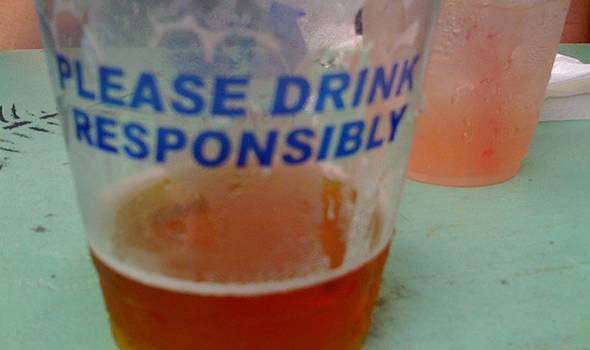Most people who binge drink are not actually alcohol dependent – they’re not even necessarily problem drinkers. At the same time, binge drinking is the most common way alcohol is both enjoyed and abused in many parts of the world.
In many societies (including our own), binge drinking is seen as a relatively harmless social activity – especially among young adults. I’m certainly not here to condemn all binge drinking – the reality is that people have binged throughout history and will continue to do so, generation after generation. However, it does pay to be aware of the true facts and statistics behind binge drinking.
Binge drinking isn’t always fun and games, and things can go south very quickly. Hopefully, the information below will help you make more responsible, informed choices the next time you’re heading for a wild night out.

Note: This article isn’t meant for alcoholics or anyone with an alcohol problem – it goes without saying that anyone with an alcohol problem needs to avoid binge drinking at all costs.
Binge Drinking Facts & Statistics

Over 50% of alcohol consumed in the U.S. is through binge drinking (Flickr | kevin033)
According to the National Institute on Alcohol Abuse and Alcoholism, binge drinking is defined as “a pattern of drinking that brings a person’s BAC (blood alcohol concentration) to 0.08 grams percent or above.” This is approximately 5+ drinks in less than 2 hours for men, or 4+ drinks for women.
Fact #2
1 out of every 6 American adults binge drinks 4 times every month, drinking approximately 8 drinks each binge.

Fact #3
Binge drinking is actually more common amongst households with an income greater than $75,000.
Fact #4
College students are typically associated with wild binge drinking, but 70% of all binge drinking is performed by adults 26+ years old.
Fact #5
While those 26 and older may do the majority of the binge drinking, underage drinkers are much more likely to binge when drinking – 90% of the alcohol consumed in the United States by underage drinkers (under 21) is in the form of binge drinks.
Fact #6
Men are twice as likely to binge drink as women.
Fact #7
Those who binge drink are 14 times more likely to drink and drive than those who don’t binge drink.
Fact #8
Over 50% of all alcohol consumed in the United States by adults is in the form of binge drinking.
Fact #9
Binge drinking greatly increases your changes of both short term and long term health issues – some fatal. This may include:
- Injuries due to accidents while intoxicated (e.g. falling down, drowning, car crashes)
- Alcohol poisoning
- Asphyxiation from vomit (choking to death on vomit while passed out)
- STIs
- Accidental pregnancy
- Fetal alcohol syndrome in children
- Cardiovascular disease
- Liver disease
- Neurological disease
- Erectile Dysfunction
Fact #10
According to a study published in 2006 that looked at the economic costs of binge drinking in the United States, binge drinking causes $223.5 billion dollars in damage to the American economy each year, including 72.2% from lost productivity, 11% from added healthcare costs, and 9.4% from police and criminal justice costs.
Fact #11
The human toll aside, the financial cost of crimes related to excessive alcohol consumption each year is a staggering $73.3 billion.
Fact #12
Binge drinking is responsible for around 79,000 premature deaths in the United States each year. Some common causes of death include acute alcohol poisoning, cirrhosis of the liver, drunk driving collisions, fatal violence, and suicide.
Fact #13
The binge drinking statistics indicate that it puts you at a higher risk for over 54 injuries and diseases.
Fact #14
Frequent binge drinking can have an effect on your ability to learn and concentrate, well after your hangover has disappeared. Some of this damage may be irreversible.
Fact #15
Those who start binge drinking before the age of 14 are 4 times more likely to become alcoholics later in life.
Safer Drinking

Drink Responsibly (Flickr | morten gade)
At the end of the day though, each individual is responsible for their own well-being and behavior. Here are some tips for avoiding excessive binge drinking (again, this doesn’t apply to anyone with a drinking problem):
- Set limits in advance – don’t let others pressure you into going ove rthem.
- Start off with a non-alcoholic drink.
- Eat a full meal before you go out.
- Drink slowly – take sips rather than big gulps or “chugging”.
- Avoid rounds of shots – shots of hard liquor can put you over the top really quickly, and drinking in “rounds” ensures that you won’t be able to comfortably control your alcohol intake.
- Keep busy – don’t just sit/stand around drink, make sure the evening revolves around something else as well.





{ 0 comments… add one now }
You must log in to post a comment.